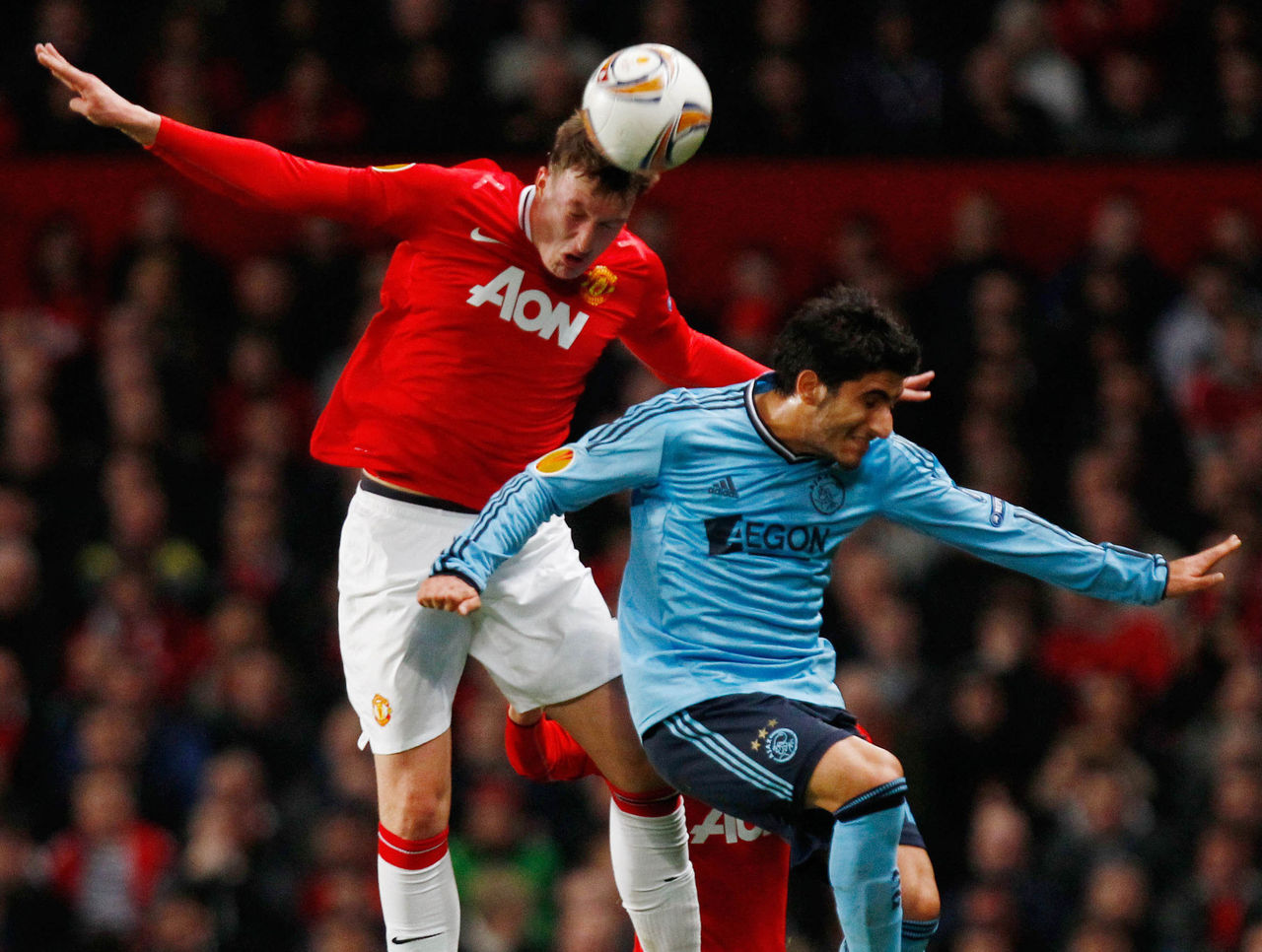Henrikh Mkhitaryan: The present, past and future of Armenian soccer
Henrikh Mkhitaryan has already been overshadowed at Manchester United, surrounded by bigger new stars in Zlatan Ibrahimovic and Paul Pogba.
But for the people of Armenia, no player is more important than Mkhitaryan.
The former Borussia Dortmund man, "Micky" to his German fans, scored 11 goals and recorded 15 assists in the Bundesliga last season before completing a £26.3-million move to the Theatre of Dreams.
On Monday, he became the first Armenia international to play in the Premier League, the 112th represented ethnicity in the English top flight.
It's a milestone moment for Armenian football, for when Mkhitaryan stepped onto the grass at Old Trafford, he built a bridge between two otherwise separate worlds.
The Armenia of today

Growing up, it was hard to consolidate Armenian culture with a passion for football. The exploits of the national team were rarely televised and interest in the Armenian Premier League is born of obligation. You don't see Armenian car flags when World Cup fever comes around.
Before Mkhitaryan, there weren't many players to idolise, either. Alecko Eskandarian and Yura Movsisyan provided a local connection in Major League Soccer but Premier League football, it was not.
As a team, Armenia has proven itself competent in qualifying rounds but not quite enough to represent the country when it counts, having never qualified for a major international tournament.
The national team is not an embarrassment, though. It earns its pride. You will always get a fight. Armenia is not an "easy three points," though the collective sighs of relief from group stage opponents during each draw says otherwise.
Narrow 1-0 results in either direction tell the story of Armenia's resilience.
The Armenia of yesterday

Armenia, as a culture, has endured its fair share of pain, but an indomitable spirit of competition remains ever-present, a fact proven at the Olympic Games, where this small landlocked nation often defies expectations and walks home with a number of medals in various competitions.
That same spirit fosters complex and dominating minds in chess and accomplishes incredible feats in weightlifting, wrestling, and boxing.
Football remains in its infancy in the country, however, as many fathers tell their sons that the best players in the Soviet Union team of the late 20th century were Armenian.
Nikita Simonyan, Volodymyr Muntyan, and Khoren Oganesian, names now long forgotten, never wore Armenian colours, but they remain highly respected in Soviet football history.
There have been other recognisable Armenian players in those years flying the flags of other nations; Youri Djorkaeff played for his father's France and is an iconic figure in the country's footballing history; Andranik Teymourian opted to play for his birthplace, Iran; even Manchester United full-back Matteo Darmian of Italy has supposed Armenian roots.
The Armenia of tomorrow

Armenian supporters aren't quite sure where the country stands in the world - FIFA's rankings say 102nd, and maybe that's fair.
The successes of Albania, Iceland, Wales, Northern Ireland, and Slovakia - all of whom rose above their station to qualify for Euro 2016 - are stories from which Armenia draws inspiration.
The belief is one day soon Armenia will join them at that mantle.
Mkhitaryan is the product of a Pyunik Yerevan team that pumps out the majority of Armenia's talent. Each cycle deepens that talent pool.
If Mkhitaryan is Armenia's icon, Aras Ozbiliz is his understudy; David Arshakyan is ready to take on MLS with the Chicago Fire and has shown tremendous promise, too.
The more cynical will point out that Armenia has been on a downward slope since manager Vardan Minasyan left the post in 2014, after guiding the country to a 3rd-place finish in Euro 2012 qualifiers.
A last-place finish in the group stage of Euro 2016's qualifiers didn't help.
Mkhitaryan's legacy
This sight alone has cemented Mkhitaryan's legacy, though it's far too soon to make grand, sweeping proclamations about his influence on the growth of Armenian football as a whole.
Those accomplishments have yet to come, if ever; they could still very well be the accomplishments of another.
Instead, Mkhitaryan's legacy is that of trailblazer, of pioneer. He does not need to be the country's saviour. There remains plenty of work to be done for the quality of Armenia's football programs to compete on the world stage.
But no matter what happens at Old Trafford, whether Mkhitaryan proves himself at the Theatre of Dreams or not, he has already broken the barrier between two worlds.
In at least one pair of Armenian boots, there exists Premier League quality.
That's good enough ... for now.
HEADLINES
- Chiefs GM: We're 'lucky' to have Marquise Brown in 2024
- Yankees delay LeMahieu's rehab assignment because foot hasn't fully healed
- Rockies' Freeland out 4-6 weeks with elbow injury, says pitch clock could be factor
- NHL Power Rankings: The Final 16
- Caleb Williams wants to play '20 years' for same NFL team